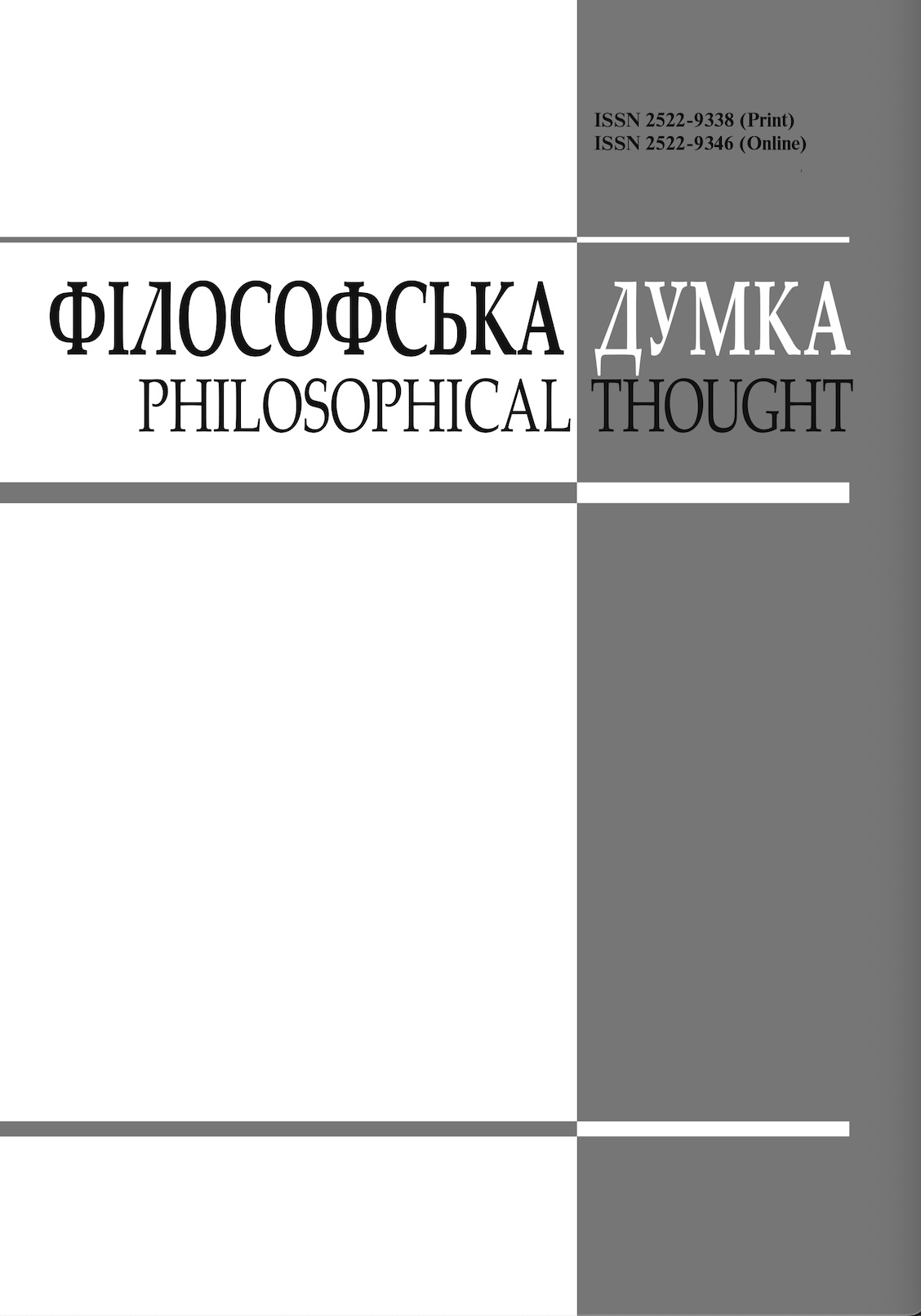JUSTICE OR PEACE? THE COLLISION OF THE CONCEPTS OF PEACE AND WAR IN CHRISTIAN ETHICS AND IN CONFLICT RESOLUTION PRACTICES
DOI:
https://doi.org/10.15407/fd2025.01.130Keywords:
concept of just peace, concept of just war, Christian ethics, non-violence, responsibility, jus post bellum, compromise in wartimeAbstract
The article explores the reasons and the outcomes of the displacement of the concept of just war inherent in Catholic Christian ethics, which are correlated with the approaches of international security organizations based on the a priori possibility of agreement, dialogue and non-violent conflict resolution. Among the causes of negative consequences, the false opinion that the time of wars between states has passed and the interpretation of armed conflicts as exclusively internal regional disputes are singled out. These factors lead to a delayed reaction of the international community to wars or to the absence of an effective reaction at all. An undesirable consequence is also the devaluation of the vocation of the military and deficiencies in the preparation of moral and psychological support for the performance of their duties.
Criticism of the theory and practice of just peace in its Catholic version and in the algorithms of UN actions is proposed on the basis of the arguments of M. Potappel, who reveals the failure of this concept against the background of the Russian Federation's war in Ukraine from February 24, 2022. Critical remarks refer, in particular, to the orientation of this concept only to the protection and provision of individual human rights and the absence of legal and security mechanisms to protect the sovereignty of states and the right of nations to exist in the event of armed aggression from other states. An important theoretical problem is the overly optimistic anthropology of the theory of just peace, which relies on human morality and underestimates the propensity for evil and disagreement. Instead, attention is drawn to the fact that in the very Christian theology of Augustine, Aquinas, and in subsequent Catholic thought, the need to restore and protect justice by force is justified. It is concluded that the development of the just war concept is relevant, that its implicit goal is to achieve a just peace, and that it should be supplemented by developments in the field of jus post bellum.
The study continues reasoning on the topic of achieving peace in Ukraine, in particular, in the context of questions about the possibility and limits of compromise, proposed by S. Yosypenko (Philosophical thought, 2024, no. 4). Attention is focused on the combination of conviction and responsibility in politics (M. Weber) and the role of foreign aid to Ukraine to ensure the prospects of a just peace, which involves the justified use of force and the elimination of war criminals as a party to the negotiations.
References
Balachuk, I. (2025). Readiness of Ukrainian for Territorial Concessions in order to Achieve Peace Increased - КIIS. [In Ukrainian]. Ukrainska Pravda, 3 January. Retrieved from: https://www.pravda.com.ua/news/2025/01/3/7491860/
de Laubier, P. (1990). Pour une civilisation de l'amour. Le mesasage social chrétien. Paris: Fayard.
Francis. (2020). Fratelli Tutti. Encyclical Letter of the Holly Father Francis on Fraternity and Social Friendship. [In Ukrainian]. Retrieved from:
Kiryukhin, D. (2024). The debates on war and democracy. [In Ukrainian]. Filosofska Dumka, 1, 56-70. https://doi.org/10.15407/fd2024.01.056
Komar, O. (2024). Coercion to peace and rotten compromises. Book Review: Avishai Margalit "On Compromise and Rotten Compromises": Reflections on the book. [In Ukrainian]. Filosofska Dumka, 4, 143-151. Retrieved from https://dumka.philosophy.ua/index.php/fd/article/view/780
Latiff, R. (2018). Jumping into Combat without a Parachute - оn Purpose? Expositions, 12(1), 72-79. Retrieved from: https://expositions.journals.villanova.edu/index.php/expositions/article/view/2321/2225
Lederach, J. (2019). Sustainable Reconciliation in Divided Societies. [In Ukrainian]. Kyiv: Duh i Litera.
Lee, S. (2012). Ethics and War. An introduction. Cambridge University Press.
McCarthy, E. (2016). Just peace approach can elicit better strategies than war. National Catholic Reporter, August 24. Retrieved from: https://www.ncronline.org/just-peace-approach-can-elicit-better-strategies-war
McCarthy, E. (2023). Just Peace Framework: A Brief Primer. The Journal of Social Encounters, 7(2), 203-208. https://doi.org/10.69755/2995-2212.1213
Pascal, B. (2009). Pensées. [In Ukrainian]. Kyiv: Duh i Litera
Potappel, M. (2024). How Ukraine's Just War Challenges Just Peace Theory. Journal of Religion, Culture & Democracy, March, 2024. https://doi.org/10.54669/001c.94254.
https://doi.org/10.54669/001c.94254
Thomas Aquinas, T. (1265-1274). Summa Theologica. Retrieved from: https://documentacatholicaomnia.eu/03d/1225-1274,_Thomas_Aquinas,_Summa_Theologiae_%5B2%5D,_EN.pdf
Universal Declaration of Human Rights. (1948). Adopted by the UN General Assembly in Paris on 10 December 1948. [In Ukrainian]. Retrieved from: https://www.ohchr.org/en/universal-declaration-of-human-rights
Walzer, M. (2006). Terrorism and Just War. Philosophia, 34(1), 3-12. https://doi.org/10.1007/s11406-006-9004-1
https://doi.org/10.1007/s11406-006-9004-1
Weber, М. (1998). Politik als Beruf. In: Max Weber, Sociology. Universal Historical Analyses. Politics / Tr. from German and commentaries by О. Pohorilyi (pp. 173-191). [In Ukrainian]. Кyiv: Оsnovy.
Yosypenko, S. (2024). From a just war to a just peace. Moral principles and limits of compromises in wartimes. [In Ukrainian]. Filosofska Dumka, 4, 87-112. https://doi.org/10.15407/fd2024.04.087
Downloads
-
PDF (Українська)
Downloads: 77
Published
How to Cite
Issue
Section
License
Authors who publish with this journal agree to the following terms:
- Authors retain copyright and grant the journal right of first publication.
- Authors are able to enter into separate, additional contractual arrangements for the non-exclusive distribution of the journal's published version of the work (e.g., post it to an institutional repository or publish it in a book), with an acknowledgement of its initial publication in this journal.
- Authors are permitted and encouraged to post their work online (e.g., in institutional repositories or on their website) prior to and during the submission process, as it can lead to productive exchanges, as well as earlier and greater citation of published work (See The Effect of Open Access).


